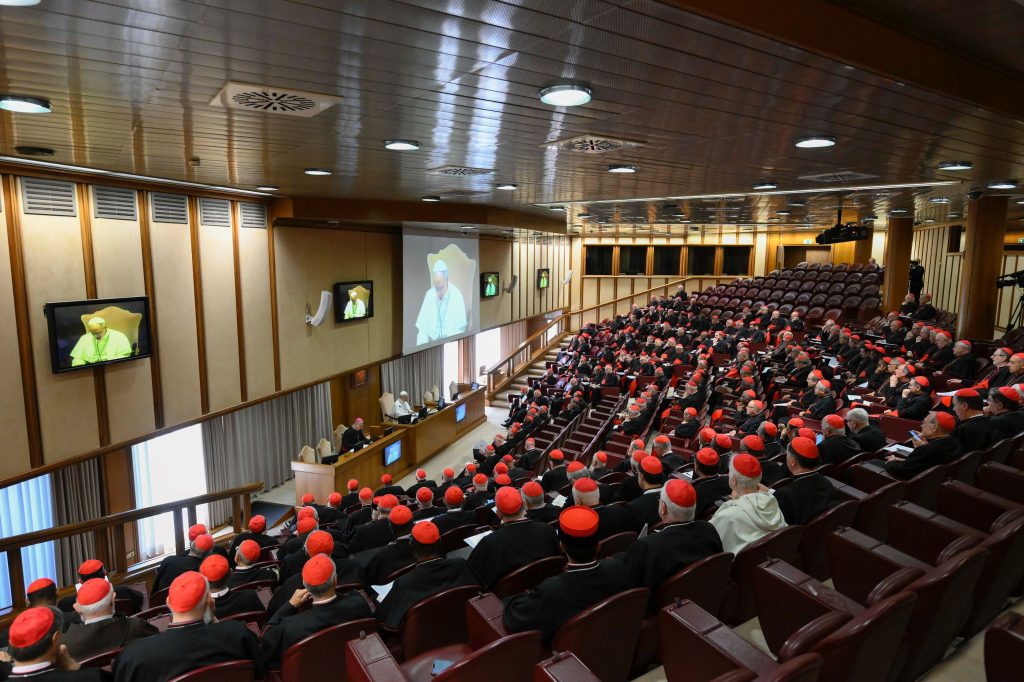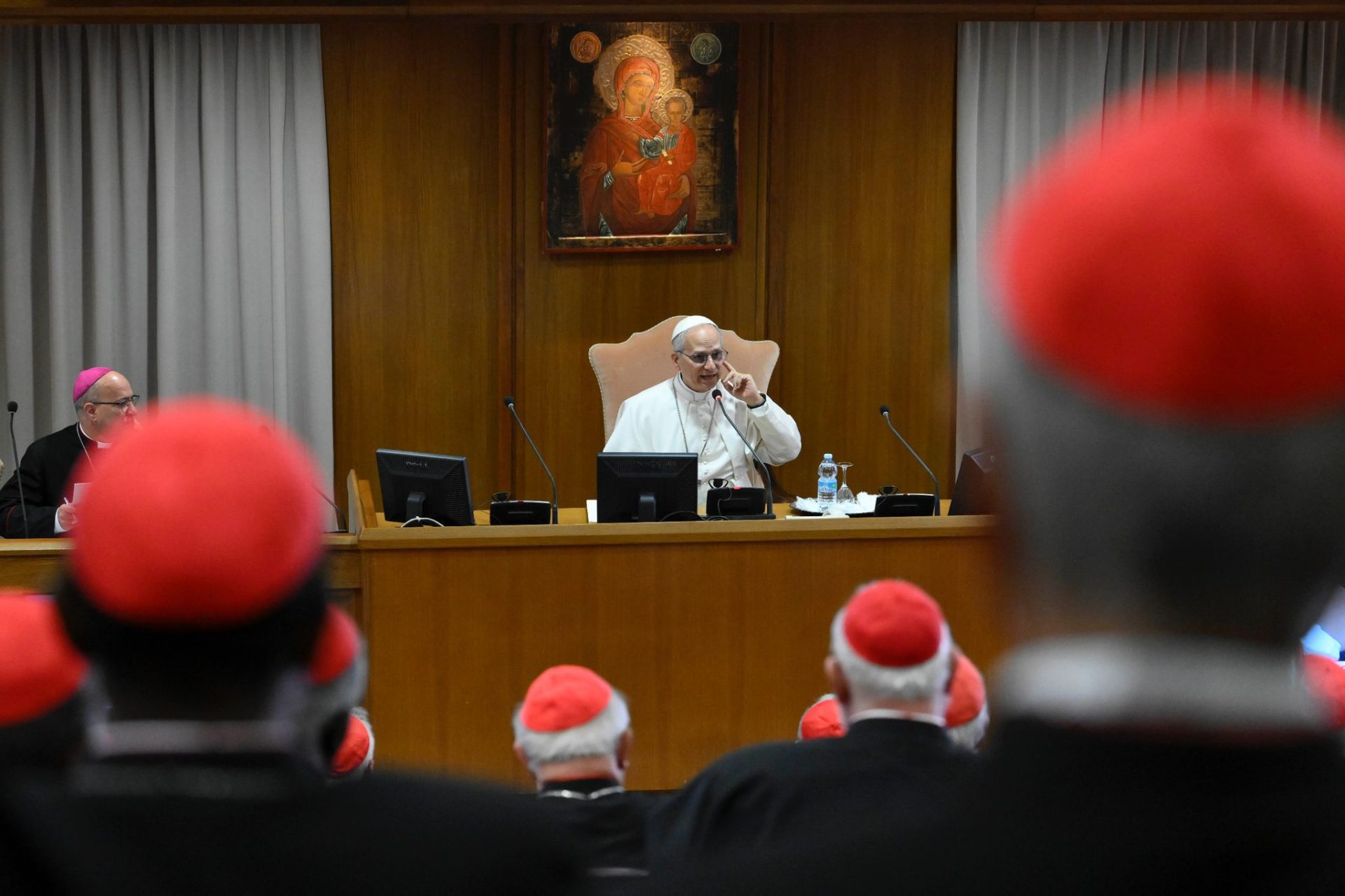Pope Leo XIV on Saturday reaffirmed the Church’s commitment to the reforms of the Second Vatican Council and the social teachings developed by his predecessors, particularly Pope Francis, calling on the College of Cardinals to continue “the journey, inspired by the same hope that is born of faith.”
In his address to the cardinals, the new pontiff described the days of mourning for Pope Francis and the recent conclave as “a paschal event, a stage in that long exodus through which the Lord continues to guide us towards the fullness of life.”
Reflecting on Pope Francis’ life and ministry, Leo XIV praised his predecessor’s “example of complete dedication to service and to sober simplicity of life, his abandonment to God throughout his ministry and his serene trust at the moment of his return to the Father’s house.” He urged the Church to carry forward this “precious legacy.”
Recognizing the immense responsibility of the papacy, Pope Leo XIV expressed confidence that he would not face it alone, drawing strength from the support of the College of Cardinals and the wider Church.
The pope said he intended to carry forward the Church’s post-conciliar trajectory, describing the Second Vatican Council as a continuing foundation for ecclesial renewal. He cited Evangelii Gaudium, Pope Francis’ 2013 apostolic exhortation, as a concrete expression of that vision.

Pope Leo highlighted several priorities laid out in Evangelii Gaudium: “the return to the primacy of Christ in proclamation… the missionary conversion of the entire Christian community… growth in collegiality and synodality… attention to the sensus fidei, especially in its most authentic and inclusive forms, such as popular piety… loving care for the least and the rejected… [and] courageous and trusting dialogue with the contemporary world.”
“These are evangelical principles that have always inspired and guided the life and activity of God’s Family,” he said, adding that they continue to reveal “the merciful face of the Father… the ultimate hope of all who sincerely seek truth, justice, peace and fraternity.”
He also emphasized the Church’s role in addressing modern social challenges. Explaining his choice of the name Leo XIV, the pope said he was inspired by Pope Leo XIII, whose 1891 encyclical Rerum Novarum laid the foundation for modern Catholic social teaching during the first industrial revolution.
“In our own day,” he said, “the Church offers to everyone the treasury of her social teaching in response to another industrial revolution and to developments in the field of artificial intelligence that pose new challenges for the defence of human dignity, justice and labour.”
Throughout his speech, Pope Leo pointed to the Risen Christ as the true shepherd of the Church. Quoting Romans 5:5, he said the Lord “continues to fill her with hope through the love ‘poured into our hearts through the Holy Spirit who has been given to us.’”
He urged the cardinals to be “docile listeners to his voice and faithful ministers of his plan of salvation,” noting that God often speaks “not in the roar of thunder and earthquakes, but in the ‘whisper of a gentle breeze’… or, as some translate it, in a ‘sound of sheer silence.’”
The new pope concluded by invoking the words of Pope Paul VI at the beginning of his own pontificate in 1963: “May it pass over the whole world like a great flame of faith and love kindled in all men and women of good will… with the very strength of God, without whose help nothing is valid, nothing is holy.”
“May these also be our sentiments,” he said, “to be translated into prayer and commitment, with the Lord’s help.”







